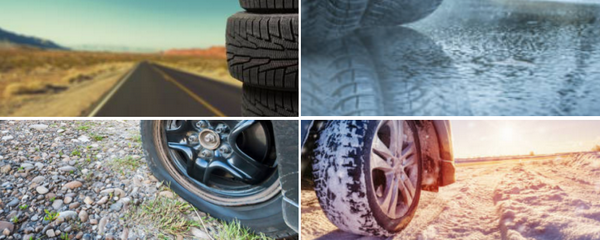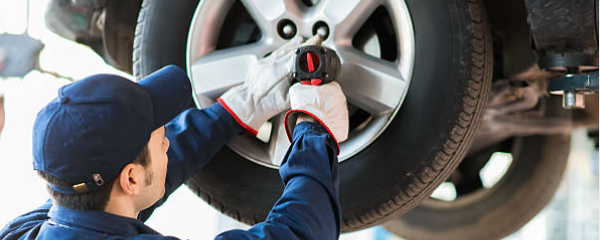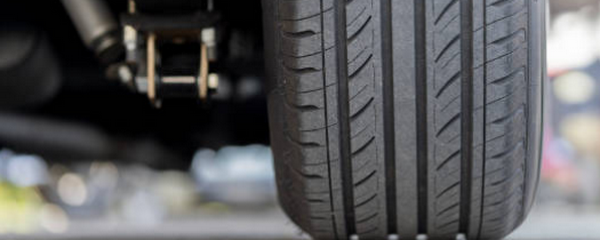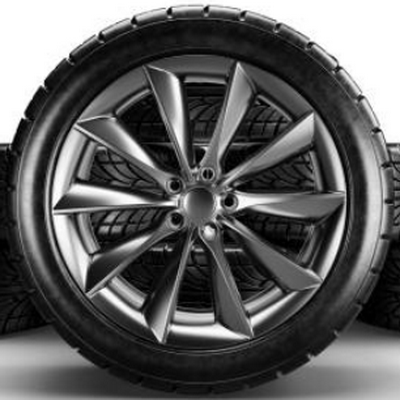We all know how tricky it can be to pick the right tires. You might be feeling like you need a Ph.D. in “Rubber Science” to figure out the best choice for your vehicle. But here’s the kicker: Choosing the wrong tires can lead to all sorts of problems down the road – pun intended! The right tires? They give you peace of mind, safety, and that sweet feeling of driving smoothly.
**So, how do you choose the right tires? It’s all about matching the tire to your vehicle and driving habits. Luckily, Centara tires have options for every kind of vehicle – cars, SUVs, light trucks, and even minivans. Whether you’re after performance tires, touring tires, or all-season, Centara’s got you covered with certified global-quality tires. And, yes, it’s important to choose wisely!**

Picture this: It’s raining, your car slides, and suddenly you’re gripping the steering wheel for dear life. All because you didn’t replace your old tires sooner! I’ve seen this happen more times than I can count, but it doesn’t have to be you. With Centara tires, you can avoid all that drama.

How do I know if I need all-season or performance tires?
When deciding between all-season and performance tires, it’s essential to consider your driving habits and the conditions you typically face. All-season tires are designed for versatility, handling various weather conditions such as light rain, dry roads, and occasional light snow. They are perfect if you live in an area with mild weather fluctuations. If your daily routine consists of city commuting, weekend getaways, or family road trips, all-season tires are likely the best choice for you. They offer decent tread life and comfort, allowing you to go about your day without worrying about your tires.
On the flip side, performance tires are tailored for drivers who crave speed and precision. If you enjoy spirited driving, take your car on winding roads, or participate in motorsports, performance tires are the way to go. These tires provide superior grip and handling, enhancing your vehicle’s response during aggressive maneuvers. However, they may not perform well in heavy snow or icy conditions. If you live in an area where winters are harsh, it’s advisable to have a dedicated set of winter tires alongside your performance tires.
In summary, if you value comfort and longevity, opt for all-season tires. If you prioritize handling and speed, performance tires will better suit your needs. Always remember to evaluate the climate and road conditions you encounter regularly to make the best decision for your driving experience.

What factors should I consider when choosing tires?
Choosing the right tires involves multiple factors, each contributing to your vehicle’s overall performance, safety, and efficiency. Here’s a rundown of the most critical considerations:
1. **Driving Conditions:**
Think about where and how you primarily drive. Do you mostly navigate city streets, or do you frequently take long highway trips? If your driving includes a lot of highway travel, you might prefer tires designed for lower rolling resistance, enhancing fuel efficiency. Conversely, if you often drive on rough terrain, consider tires with more rugged treads.
2. **Weather Conditions:**
Your local climate plays a significant role in tire selection. If you experience heavy rain or snow, all-season or winter tires are essential for maintaining traction and safety. In warmer climates, performance tires can provide the necessary grip and responsiveness.
3. **Vehicle Type:**
The type of vehicle you own significantly influences your tire choices. Sports cars benefit from performance tires that enhance speed and handling, while family vehicles might require all-season tires for safety and comfort.
4. **Tread Life:**
Different tires come with varying tread life ratings. Higher mileage tires can save you money in the long run, even if they have a higher upfront cost. Always check the warranty and expected lifespan of the tires you’re considering.
5. **Fuel Efficiency:**
Tires can affect fuel economy. Look for tires labeled as “fuel-efficient,” which have lower rolling resistance. This characteristic not only helps you save at the pump but can also reduce your vehicle’s environmental impact.
6. **Budget:**
Tires come in a wide price range. While cheaper tires might save you money upfront, they could lead to higher long-term costs due to faster wear or safety issues. Investing in quality tires is essential for your safety and the longevity of your vehicle.
7. **Brand Reputation:**
Research brands and read reviews to find a manufacturer with a solid reputation for quality and performance. Well-known brands often provide better warranties and customer service.
By weighing these factors carefully, you can ensure that you select the right tires for your driving needs, ensuring optimal performance and safety.

Can the wrong tires affect my vehicle’s performance?
Absolutely! Using the wrong tires can significantly impact your vehicle’s performance, handling, and safety. Here are some ways the wrong tires can affect your driving experience:
1. Handling and Control:
Tires play a critical role in your vehicle’s handling capabilities. Using tires not suited for your driving style – whether that means using all-season tires on a performance vehicle or performance tires during winter – can lead to decreased control. You may find it difficult to navigate tight corners or emergency maneuvers, leading to a higher risk of accidents.
2. Braking Performance:
The type of tires you choose directly influences your braking distance. Performance tires typically have better grip, allowing for shorter stopping distances. On the other hand, all-season tires may not provide adequate stopping power in extreme conditions, such as wet roads or icy surfaces.
3. Tire Wear:
Using the wrong tires can lead to uneven wear. For instance, performance tires might wear out faster if driven in conditions for which they weren’t designed. Conversely, all-season tires could wear unevenly on a sports car, resulting in the need for earlier replacements.
4. Ride Comfort:
The wrong tires can affect the comfort level of your ride. Performance tires, while offering excellent handling, often provide a stiffer ride, making it less comfortable over rough surfaces. All-season tires usually have a more cushioned ride, better suited for everyday driving.
5. Fuel Efficiency:
The type of tires you choose can also impact fuel economy. Some tires are designed with fuel efficiency in mind, while others may have higher rolling resistance, leading to increased fuel consumption. Using tires that don’t match your vehicle’s specifications can lead to higher fuel costs over time.
In conclusion, the wrong tires can affect not just performance but also safety and overall driving experience. It’s crucial to choose the right type of tires that match your vehicle, driving style, and the conditions you encounter regularly.

How often should I replace my tires?
Determining when to replace your tires is crucial for your safety and vehicle performance. Here are some key indicators to help you know when it’s time for a new set of tires:
1. Tread Depth:
The legal minimum tread depth in many areas is 2/32 of an inch, but it’s recommended to replace tires when the tread depth reaches 4/32 of an inch, especially in wet or snowy conditions. You can easily check tread depth using the “penny test.” Insert a penny into the tread with Lincoln’s head facing down; if you can see all of his head, it’s time to replace those tires.
2. Visible Damage:
Inspect your tires regularly for signs of damage. Look for cracks, bulges, or cuts in the sidewalls. If you notice any irregularities, it’s best to consult a professional. A damaged tire can lead to blowouts or decreased performance.
3. Vibration or Noise:
If you experience excessive vibration or noise while driving, it could indicate that your tires are out of balance or that there’s uneven wear. This can be a sign that they need replacing or at least inspecting by a professional.
4. Age of Tires:
Even if the tread looks good, tires should generally be replaced every six years, regardless of wear, due to the rubber degrading over time. Check the DOT code on the sidewall, which indicates the week and year your tire was manufactured. If your tires are approaching or exceeding this age limit, it’s wise to consider replacing them.
5. Seasonal Changes:
If you live in an area with distinct seasonal changes, switching between winter and summer tires is crucial. Winter tires are designed for cold temperatures and snowy conditions, while summer tires excel in warmth. Keeping the right tires for the right season can improve safety and performance.
In summary, regularly inspect your tires and keep an eye on their tread depth, visible damage, age, and any unusual vibrations or noises. Proactive tire maintenance will ensure your vehicle remains safe and performs at its best.

Are expensive tires worth it?
When it comes to tire shopping, many people wonder whether they should invest in higher-priced tires or settle for more budget-friendly options. The answer often depends on several factors:
1. Quality and Performance:
Higher-priced tires typically offer better performance, durability, and safety features. They are often made from superior materials and incorporate advanced technologies, such as better tread designs and enhanced rubber compounds. If you frequently drive in challenging conditions or seek superior handling, investing in quality tires is worth considering.
2. Longevity:
While cheaper tires may save you money upfront, they often wear out faster, leading to more frequent replacements. High-quality tires are designed to last longer, making them a more economical choice in the long run. You may end up saving money on replacements and potentially avoiding safety issues related to worn-out tires.
3. Safety Features:
Expensive tires often come with enhanced safety features, such as better traction, improved wet-weather performance, and advanced tread patterns that reduce the risk of hydroplaning. For drivers who prioritize safety – especially in areas with harsh weather – investing in premium tires can be a wise decision.
4. Comfort:
Higher-end tires often provide a smoother and quieter ride, improving overall driving comfort. If you frequently travel long distances or spend a lot of time in your vehicle, the comfort that premium tires provide can make a significant difference in your driving experience.
5. Brand Reputation:
Investing in well-known brands with a strong reputation for quality can give you peace of mind. Reputable manufacturers often provide better warranties and customer service, which can be beneficial in the event of issues with your tires.
In conclusion, while expensive tires may require a larger initial investment, they often provide better performance, safety, and longevity. If you prioritize quality and safety in your driving experience, higher-priced tires can be a worthwhile investment.

What maintenance do tires need?
Think of your car tires as that high-maintenance friend who always needs a bit of extra attention. You know the type – the one who insists on regular spa days and a perfectly balanced diet. Well, your tires are no different!
First up, rotation. Just like your friend who loves to switch up their look, your tires need to be rotated regularly. This helps them wear evenly and last longer. Plus, it keeps your ride smooth and your wallet happy.
Next, let’s talk air pressure. Imagine your friend trying to run a marathon in stilettos – not a pretty sight, right? Keeping your tires properly inflated is just as crucial. Check the pressure monthly and before long trips. It’s a small step that makes a big difference in performance and safety.
And don’t forget balancing. Your tires, like your friend after a yoga class, need to stay balanced. This prevents uneven wear and tear, ensuring a longer life and a smoother ride.
So, give your tires the TLC they deserve. Rotate, inflate, and balance them regularly. A little love goes a long way, and your tires will thank you by keeping you safe and sound on the road. After all, even high-maintenance friends are worth the effort!

What’s the difference between touring and performance tires?
Imagine your tire choices as a wardrobe decision. Touring tires are like those comfy shoes you wear on long walks – quiet, smooth, and durable. They’re perfect for those long highway cruises where comfort and longevity are key. Think of them as your trusty sneakers, always ready for a marathon of miles.
On the flip side, performance tires are the flashy, fast pair you bring out for a wild night on the town. These are your high heels or sleek dress shoes, designed for speed and agility. They grip the road tightly, making them ideal for taking on tight turns and quick maneuvers. If you’re the type who loves the thrill of the drive and pushing your car to its limits, performance tires are your go-to.
So, whether you’re planning a leisurely road trip or gearing up for some spirited driving, your tire choice should match your driving style. Touring tires for the long, comfortable journeys, and performance tires for those adrenaline-pumping adventures. It all depends on whether you’re cruising down highways or taking on tight turns. Choose wisely, and your ride will always be just right!
In conclusion, picking the right tires is like choosing the right partner – they need to fit perfectly. Centara tires, with their wide variety, ensure you’ll find your match, no matter your vehicle or driving style. Ready to ride safe? Let Centara take you there.


